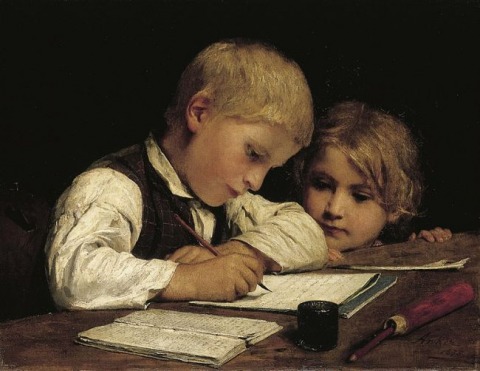
Query:
Just finished What We Can’t Not Know. Ditto on all of it. I’m principally a documentary filmmaker, and I include elements of natural law in my Story Workshops. To connect with audiences, a store’s fictional characters must experience the natural law consequences of their moral decisions, else the audience will disconnect. It’s not that the audience can explain natural law, but they just can’t not know it.
But about the broader cultural difficulty we find ourselves in, I was disappointed that the solutions you listed at the end of the book – the three counter-measures, as you call them – weren’t more complete. They are being implemented here and there in public media, but with little effect, it seems. Do any of your other writings offer practical solutions in greater depth or breadth?
Reply:
That’s the sixty-four thousand dollar question. Though they may not be much, I do have a few reflections about it/
You weren’t asking for a Grand Strategy, but a lot of people in our position do wish for one. So the first reflection is that we aren’t going to come up with a Grand Strategy. We’re soldiers. The only one who sees the whole battlefield is God.
That thought gives rise to a second one. You suggest that what we do isn’t having much effect, but because we’re only soldiers – and for other reasons, such as the way the secular media dominates reportage of just how much effect we are having, and the fact that “current trends” are not laws of nature but wills o’ the wisp – I don’t think we can say how much or how little effect we are having overall. All that each of us can tell is whether he is doing his own present duty. I don’t think Benedict thought he was laying out a Benedict Option.
Third, though I would love to turn around the culture, it isn’t really about the culture. In both the long and short run, it’s really about individual persons. C.S. Lewis used to say that cultures are short-lived, but souls last forever. When the stars are burnt to cinders, souls will just be getting started. Besides, the culture isn’t going to change until more people do. It may seem that we’re caught in a loop here, because the culture influences the people who influence the culture. Yes, but the culture isn’t all-powerful, because it can’t erase conscience, wipe out grace, or change the natural law.
The fourth reflection springs from the fact that you are obviously laboring to do all that you can with your own gifts. The most important thing, I think, is to motivate more people to do that.
Fifth and last, a person who has one gift can’t very often tell a person with another gift how best to use it. What we can do is encourage people to figure it out for themselves.
As the saying goes, every bone has to turn in the joint where it’s placed. I am a teacherly sort of bone, and I am placed in a joint where I can write. So what I can do lies mostly in helping people think more clearly and perceive what is under their noses. That’s why I write the sort of books I do. You make films. I wouldn’t have any idea how to do that.
On the other hand, people like you and me have to watch out for a certain bias. Perhaps because we are men, we too easily slip into thinking that doing stuff is more important than becoming holy. Perhaps because our own sorts of gifts put what we do in front of others, we also tend to think that doing stuff means doing things that everyone can see -- writing books (like me), making films (like you), producing television, passing laws, carving sculptures, and all that sort of thing.
We tend to overlook the fact that the most important work is often small and quiet. For example, raising good and faithful children is a work of cosmic importance. The Father arranged for even the Son to have human parents, who never wrote a book or made a film.
If this hasn’t been as helpful as I would like it to be, take a look at the strategies of face-to-face cultural apologetics that I discuss in the final chapter of an older book of mine, The Revenge of Conscience: Politics and the Fall of Man. Perhaps those might be suggestive.
Thanks again for writing. God bless your New Year.
From his response:
You’ve encouraged me. I am ambitious -- at times to a fault. Although I am always working productively, I am never satisfied. Secular news depresses me. But your response was great: We’re soldiers.
I’ll read the book. One further thought. To motivate more people to labor with their own gifts is a Grand Strategy!
My further reply:
You’ve got me – it is! Doing that will be my New Year’s resolution. Thank you.